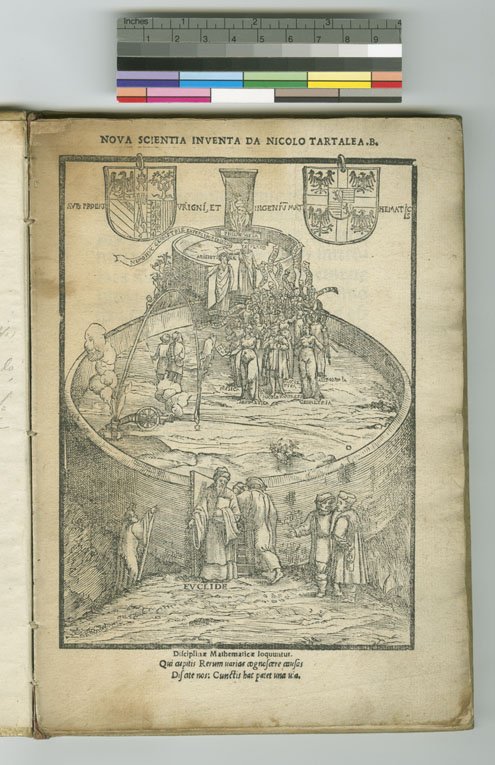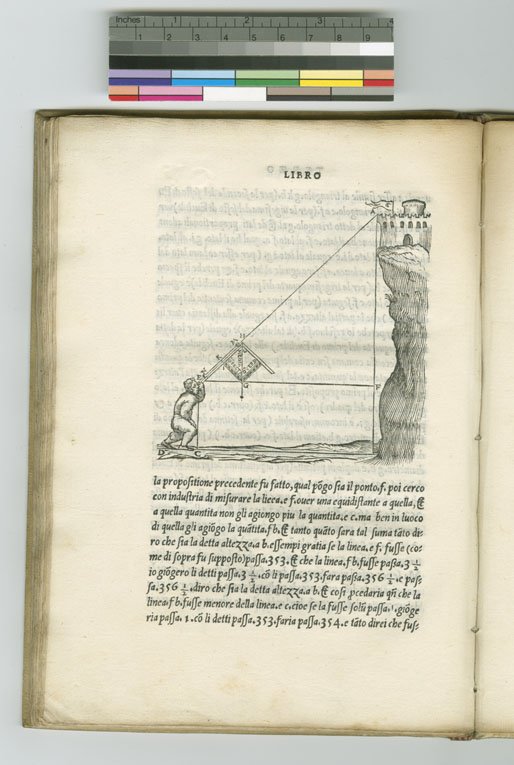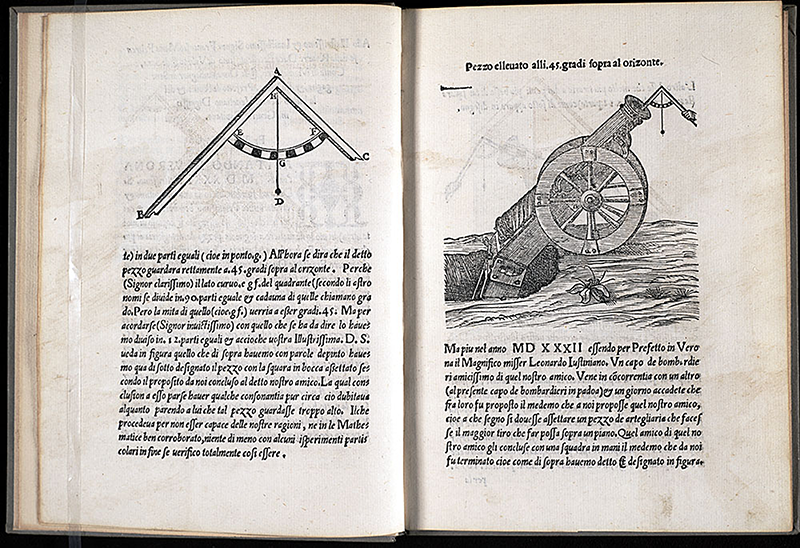Mathematical Treasures - Nicolo Tartaglia's Nova Scientia

This is the title page of the Nova Scientia (1537) of Nicolo Tartaglia (1499-1557). In this work, Tartaglia discussed the mathematics of artillery and developed methods for determining the range of a cannon. The caption below the illustration reads,
The Mathematical sciences speak: Who wishes to know the various causes of things, learn about us. The way is open to all.
The illustration itself depicts a walled compound, the compound of knowledge. The high wall keeps out the man who attempts to scale it and enter improperly. Entrance into the compound is through a single door opened by Euclid. In the first courtyard, a crowd comprised of Tartaglia and the muses of the seven liberal arts watch a demonstration of Tartaglia's new knowlege, a theory of trajectories. Beyond the first courtyard is a second smaller, more exclusive and highly elevated one. Its entrance is manned by Aristotle and Plato. Plato holds a banner proclaiming,
No one can enter who does not know geometry.
Enthroned at the rear of this compound, in the highest position of all, is philosophy.

Above: On this page (folio 29v), we see a method of determining the height of a distant object using a quadrant, or set-square.
Editor's note: The images above, from Columbia University Library's David Eugene Smith and George Arthur Plimpton collections, were posted on 5/14/2008. The images below, obtained through the courtesy of the Dibner Library of Science and Technology, Smithsonian Libraries, were added on 5/14/2017.
Tartaglia established that the trajectories of projectiles follow a (somewhat) parabolic path:

The range of a cannon is determined by the elevation of the barrel. Tartaglia designed a set-square, or quadrant, that would help gauge cannon barrel elevation:

Index to the Collection of Mathematical Treasures from the David Eugene Smith and George Arthur Plimpton collections, Columbia University Library
Index to the Convergence Collection of Mathematical Treasures